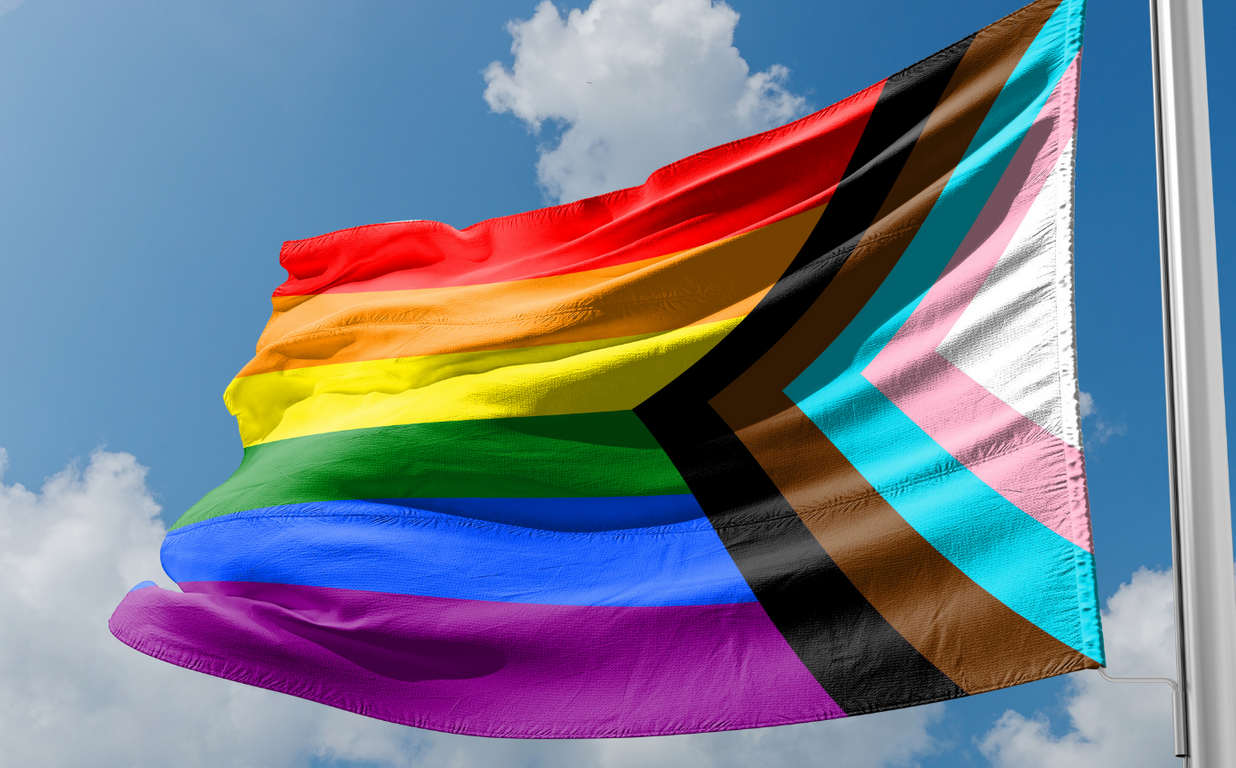What does LGBTQIA+ stand for?
WHAT IS LGBTQAI+?
LQBTQAI+ is an abbreviation for lesbian, gay, bisexual, transgender, queer or questioning, intersex and asexual. The plus sign represents other diverse gender or sexual identities. These terms are used to describe a person's sexual orientation or gender identity.
RAINBOW COMMUNITIES
A broad umbrella term that covers a diversity of sexual orientations, as well as gender and sex identities
LESBIAN
A woman whose enduring physical, romantic, and/or emotional attraction is to other women. Some lesbians may prefer to identify as gay or as gay women.
GAY
The adjective used to describe people whose enduring physical, romantic, and/or emotional attractions are to people of the same sex. Sometimes lesbian is the preferred term for women.
BISEXUAL
A person who has the capacity to form enduring physical, romantic, and/or emotional attractions to those of the same gender or to those of another gender. People may experience this attraction in differing ways and degrees over their lifetime. Bisexual people need not have had specific sexual experiences to be bisexual; in fact, they need not have had any sexual experience at all to identify as bisexual.
TRANSGENDER
An umbrella term for people whose gender identity and/or gender expression differs from what is typically associated with the sex they were assigned at birth. People under the transgender umbrella may describe themselves using one or more of a wide variety of terms— including transgender. Many transgender people are prescribed hormones by their doctors to bring their bodies into alignment with their gender identity. Some undergo surgery as well. But not all transgender people can or will take those steps, and a transgender identity is not dependent upon physical appearance or medical procedures.
QUEER
An adjective used by some people whose sexual orientation is not exclusively heterosexual. Typically, for those who identify as queer, the terms lesbian, gay, and bisexual are perceived to be too limiting and/or fraught with cultural connotations they feel don’t apply to them. Some people may use queer, or genderqueer, to describe their gender identity and/or gender expression. Once considered a pejorative term, queer has been reclaimed by some LGBTQ people to describe themselves; however, it is not a universally accepted term even within the LGBTQ community.
QUESTIONING
Sometimes, when the Q is seen at the end of LGBT, it can also mean questioning. This term describes someone who is questioning their sexual orientation or gender identity.
ASEXUAL
A broad spectrum of sexual orientations generally characterized by feeling varying degrees of sexual attraction or a desires for partnered sexuality. There are many diverse ways of being asexual. A person who does not experience sexual attraction can experience other forms of attraction such as romantic attraction, as physical attraction and emotional attraction are separate aspects of a person’s identity. These may or may not correlate with each other - for instance, some people are physically and romantically attracted to women. However, others might be physically attracted to all genders and only emotionally attracted to men.
INTERSEX
Intersex is an umbrella term that’s used to describe people born with variations of sexual characteristics (such as hormones, chromosomes, genitals and internal reproductive organs) that don’t clearly fit binary notions (meaning it’s one or the other) of male or female bodies.
As Part of our commitment to inclusivity and diversity Work Opportunities has a rainbow community liaison, our liaison person is Sue.
How will my gender identity affect my employment?
It is important to note that New Zealand has laws that protect individuals from discrimination on the basis of their sexual orientation or gender identity. This means that employers cannot discriminate against you on the basis of your gender identity, and you have the right to work in an environment free from harassment and discrimination.
However, it's important to note that discrimination and bias still exist in many workplaces, and it's important to do your research on the company and its policies before accepting a job offer. Some companies may have more inclusive policies and practices than others, and it's important to find a workplace where you feel comfortable being yourself.
Where can I go to get support?
If you are seeking support for your gender identity, there are several places you can go:
Therapists and counselors: Mental health professionals who specialize in gender identity can help you explore your feelings and provide guidance and support as you navigate your gender identity.
Online support groups: There are many online support groups and forums where you can connect with others who are going through similar experiences. Some popular options include Transgender Support Groups on Facebook.
National organisations: There are also national organisations that provide support and resources for transgender and gender nonconforming individuals, such as OutLine Aotearoa or InsideOUT. There are many others that you can seek advice from just click here
Local support groups: You can also search for local support groups in your area. One group in Dunedin is called Dunedin Pride. Dunedin Pride hold Pride Nights where everyone is welcome to go along and have some fun while learning about the LGBTQIA+ Community. If you would like to get involved click the button below!!







